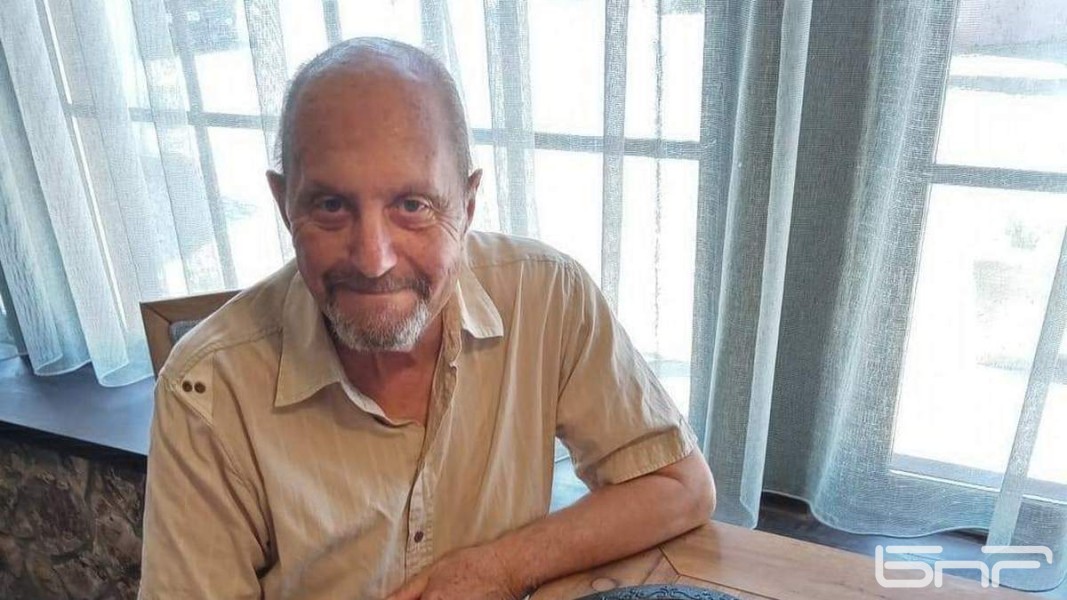Do people in Gabrovo, notorious for their thriftiness, know a recipe of survival in these times when all prices have been soaring? There is one person who does, and he has some pretty concrete achievements. His name is Petar Totsev, a retired historian, and he uses solar energy for cooking and for heating. He says that his electricity bill has gone up by 40% in recent months, but that now he pays around 10 euro a month, something anyone in Bulgaria can only dream of.
The resourceful man from Gabrovo knows how to make something out of nothing. He has made a solar cooker out of shoeboxes, foil and glass, spending about one euro on glue. He decided to experiment, copying devices popular in the poorer countries of Africa. He put two shoeboxes next to each other, used Styrofoam for insulation, lined the inside with clingfilm, and the bottom with black paper. To concentrate the sunlight on the “oven” he used glass. The food is cooked in a dark pot which is inserted into a baking bag. Petar Totsev now has three solar ovens in which the food is much tastier than when it is cooked using electricity, he says. But he has another invention too - two solar radiators made out of beer cans which he painted over in black varnish:
“Take the cans, knock out the bottoms and place them inside each other,” Totsev explains. “To keep them aligned I put wooden planks on the top and the bottom, with holes in them where the cans are inserted. I line the inside with black paper or something else that is black to attract the sun. And I placed the contraption between the two frames of the window. When it heats up the warm air rises, creating a barrier of warmth to the cold air coming from outside. In autumn and winter the room is heated,” Petar Totsev explains.

Petar Totsev is forever experimenting with anything at hand, he has made a lot of other useful devices as well. “I am free now and I can learn new things,” says PetarTotsev who was director of the museum of history in the town before retiring.
“The idea is to break the monotony of life, but not by watching matches or shows on TV. I am interested in what others have done, and I just have to “copy” them,” the pensioner from Gabrovo says.
He makes use of the Southern exposure, his solar cookers, his oven to make his life easier. But there is one more thing he wants to perfect.
“My aim is to leave no rubbish. Plastic bottles, cans, I put them all to use. Do-it-yourself is very popular in the world, there are many examples.”
The next thing he is going to try his hand at is putting together a solar panel made out of CDs. He hopes the experiment will be a success and that the energy produced will be able to power a light bulb. He says its effectiveness is guaranteed 164 days a year – the number of sunny days in a year in the region of Gabrovo.
Petar Totsev admits the soaring prices of goods and services have dipped into his pocket, but for additional earnings he relies on the odd professional job.
“I believe it is very important not to just “get in a rut” – and see only the bad things, complain that life is difficult, or feel abandoned and forgotten… that is a natural process. But on the bright side – there are information technologies that allow one to travel the world.”
Interview by Velina Mahlebashieva, BNR correspondent in Gabrovo
Photos: Velina MahlebashievaThe "Kabiyuk" horse breeding farm in the village of Konyovets is the oldest stud farm in Bulgaria, founded in 1864 by Midhat Pasha, the governor of the vilayet of Ruse, to produce horses for the Turkish army. The farm existed until the Russo-Turkish War..
There is no exact statistic on the number of Bulgarians living abroad, but a report from the Ministry of Foreign Affairs from last year indicates that around 2.8 million Bulgarians are living outside the country . According to the 2021 population census..
The nature protection organization WWF - Bulgaria is launching a campaign entitled "Subscribe to Nature". The disappearance of wild animals is a series in which we play the main role. In less than one human lifetime, 73% of vertebrates in..
The traditional Bulgarian Christmas picnic, organized by the Bulgarian Cultural and Social Association "Rodina - Sydney" and the Bulgarian School..

+359 2 9336 661
